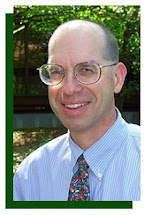 "It's not the years, honey, it's the mileage." In the movie Raiders of the Lost Ark, Indiana Jones tells the leading lady, Marion, "it's not the years, honey, it's the mileage." One of my vehicles has traveled well over 250 thousand miles and is still meeting my objectives for reliable transportation.
"It's not the years, honey, it's the mileage." In the movie Raiders of the Lost Ark, Indiana Jones tells the leading lady, Marion, "it's not the years, honey, it's the mileage." One of my vehicles has traveled well over 250 thousand miles and is still meeting my objectives for reliable transportation.It's not the acres, it's the results. This phrase could be applied to managing land in Missouri for fish, forest, wildlife, and people. About 93 percent of Missouri is privately owned. This means that "it's not the acres, it's the results" is appropriate when thinking about land management in Missouri. And each landowner and Missourian can have different expectations about those results.
In the Department of Conservation strategic plan, The Next Generation of Conservation, there is a goal category for helping private landowners advance conservation. The goal statement is:
"The Conservation Department will expand efforts to help private landowners and address the key factors limiting the ability of some to effectively manage their land— knowledge, time, money and equipment."
These words are used to describe the importance of the goal:
"Improving conservation efforts on the privately owned lands that constitute more than 90 percent of the state is essential to the overall well-being of Missouri’s fish, forests and wildlife. Landowners, whether they have large agricultural tracts or small residential parcels, need access to timely information and professional assistance. This will help farmers and landowners implement practices that benefit natural resources and serve their own needs. In some cases, landowners may require specialized equipment or a helping hand from several sources to achieve their objectives in a manner beneficial to conservation."
A focus on results. The picture of success for this goal is in the "Results we want to achieve" statements:
- Private landowners and farmers actively managing their land for natural resource and financial sustainability.
- Landowners working together to achieve conservation successes on a larger scale.
- Landowners effectively using state, federal and private conservation assistance programs and technical support.
Manage your backyard or learn more. Whether you have a backyard to manage, hundreds of acres, or simply want to know more about how the land can produce natural resource benefits, you can find answers and access to assistance at the Department of Conservation Web pages about private land.
Here is information about improving your backyard for wildlife or how native plants can improve your property;
more information about how the Department of Conservation can help your community;
information about improving a pond, stream, or wetland on your property;
and information about improving the trees and forests on your property or in your community.


No comments:
Post a Comment